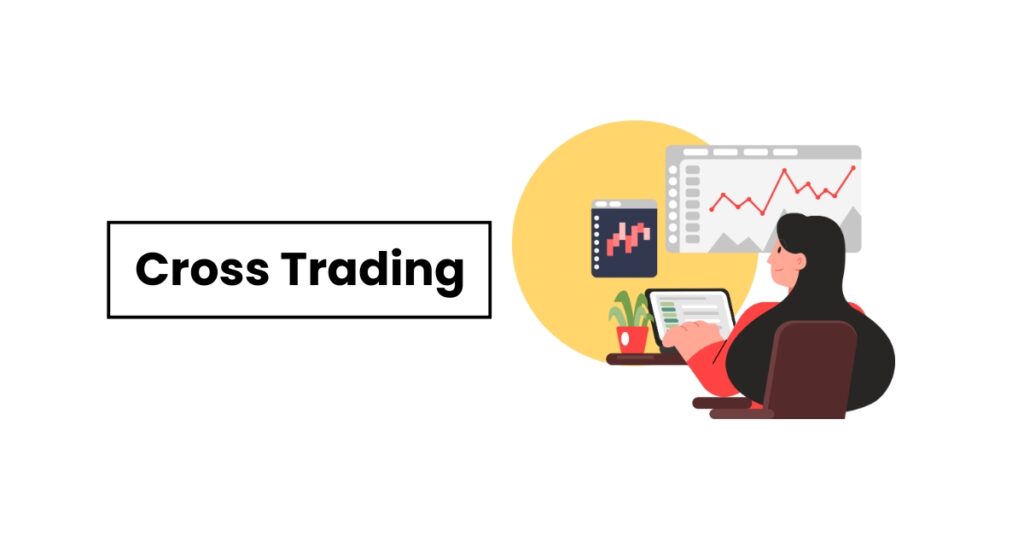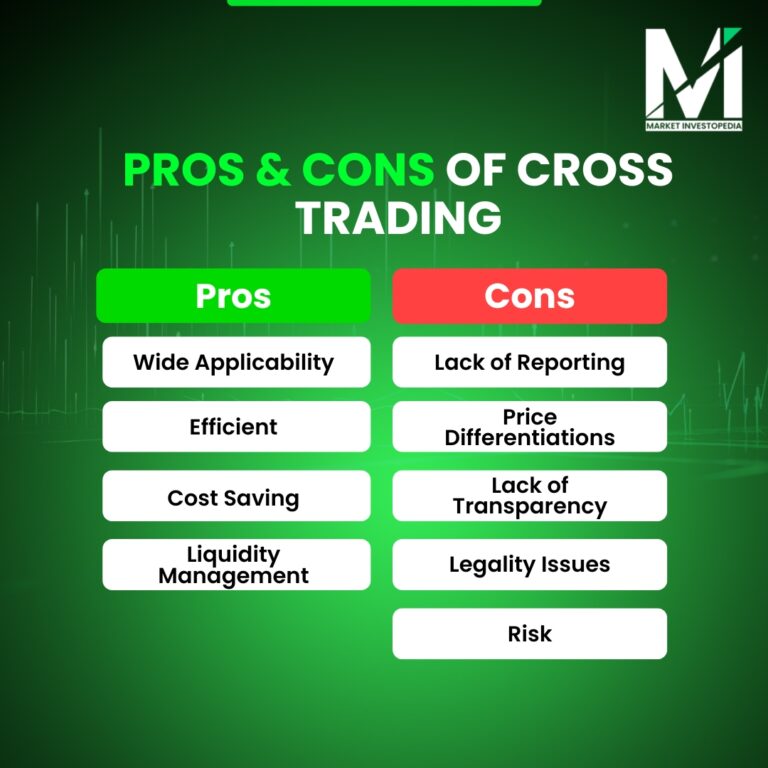Cross Trading
Buying and selling of assets takes place in a number of ways in a market. In the present time, you can do trading on centralized exchanges, over-the-counter platforms, or even go for cross-trading.
Cross-trading is a controversial concept to trade in the financial market. Wait, you don’t know the meaning? Well, if you are an active trader, knowing cross-trading concepts will help you in dealing with the right platform and trade efficiently.
What is cross-trading?
Cross-trading is a method used by a trading broker platform to execute buy or sell orders. Cross trading is when a broker connects the buyers and sellers of the same asset at the same time to execute orders without recording on the exchange.

Simply, instead of buying or selling on a centralized exchange or in an open market, the broker directly connects the buyers and sellers of the asset.
A quick glance
Cross trading is when a broker executes orders directly, connecting the buyers and sellers without recording in the open market.
Cross-trading is not entirely illegal. However, in the countries where it is legal, traders or investors need to follow strict rules.
No cross-trading is when a broker is prohibited from settling cross positions.
Select a broker that can settle your trade with a trader with an exact opposite position.
How Crosss Trading Works
Let us see a Cross Trading Example, Suppose a broker has one buyer of stock A for 100 units and one seller of the same stock for the same units.
Now, instead of executing the transaction on an exchange broker will connect the buyer or seller of stock A and offset the order without recording it on the centralized exchange.
The broker will not go to the NYSE; it will settle the transaction as a cross trade, and the platform will even notify the clients that their trade is adjusted as a cross.
That’s how cross trading takes place. However cross cross-trading is not legal in most countries and centralized exchanges.
Cross Trading Crypto Example:
Suppose a broker has two clients, one wants to buy Ethereum, and one wants to sell it. In this case broker directly initiates the transaction between the two parties.
Pros of Cross Trading
Many people think that cross-trading only benefits the broker. But that’s not true. The strategy even has some advantages for the trader. Let’s explore the upside of cross-trading for a trader:
Wide Applicability:
Cross-trading is popular in the global and local financial markets. The strategy is not limited to the stock market. Traders increasingly use cross-trading forex or cross-crypto trading strategy. So you can trade in diverse assets using the strategy.
Efficient:
When you use cross-trading with proper knowledge and analysis, the strategy can actually give you an efficient system. It’s an alternative to traditional exchanges.
Cost Saving:
When trading on the exchange, following proper protocols, you need to pay a significant cost. It includes exchange fees, commission, and wide spreads. However, cross-trading eliminates the middle platform, which ultimately leads to low-cost trading.
Liquidity management:
Big market participants and institutional traders engage in large volume trades, which can disrupt the entire market. However, if they do so using the cross-trading strategy, then they can initiate a trader without affecting the market significantly.

Cons of Cross Trading
Like the advantages, cross-trading even has some disadvantages. If you are thinking of going for this strategy, then you must know them:
Lack of Reporting:
The biggest disadvantage of cross trading is a lack of proper recording. When you trade on the exchange, following the proper protocol, the chances of scams or manipulations are limited.
Price Differentiations:
Cross traders may not get the price at which the other market players or non-cross traders are trading. And this is because the order was never listed. So in certain cases, cross traders may not get a better price to trade.
Lack of Transparency:
Generally, platforms do cross-trading to increase the trading fees. Thus, the practice lacks transparency and fair pricing.
Legality Issues:
In some currencies, cross-trading is illegal, and in countries where it is legal, a proper procedure needs to be followed. Also, if cross trading is not done following the terms and conditions, both the investor and the broker can suffer legal consequences.
Risk:
Engaging in cross-trading without reading the proper disclosure and terms and conditions leads to unfair practices. Traders and investors can lose a significant amount due to the hidden agenda of the investment manager.
Conclusion
Cross Trading exists in the market, and many traders and brokers are practicing the strategy. Undoubtedly, it gives you efficiency, speed, liquidity, and better price control.
However, it lacks transparency and leads to market manipulations. Ensure your broker informs you about the cross trades. Remember, safe trading is better than low-cost trading. So, when going for such strategies, be vigilant and do so only if you have the right knowledge.
Want to discover more strategies like Cross Trading?
Visit Market Investopedia’s blog section or reach out to attend our insightful webinars to get practical market knowledge daily.
